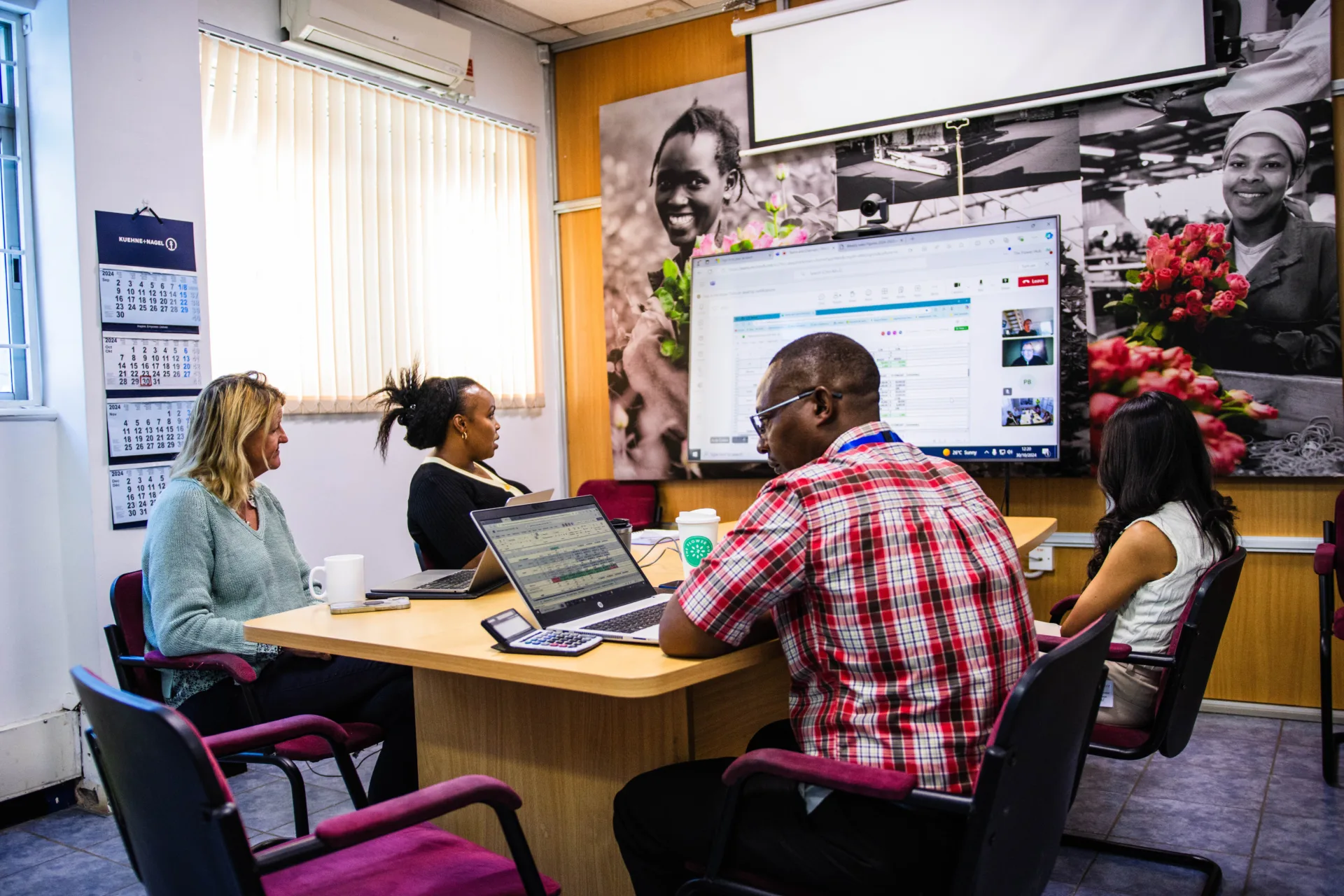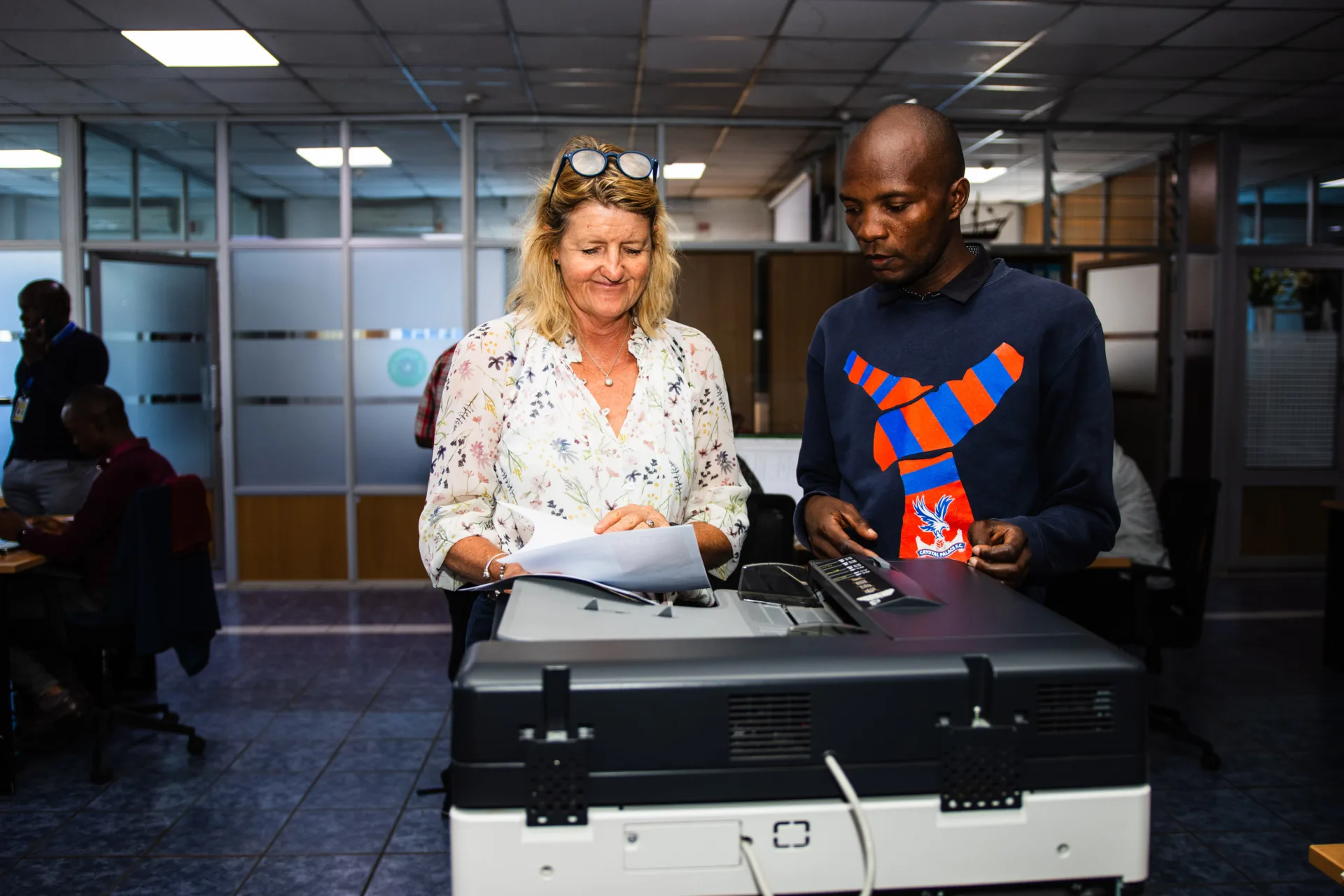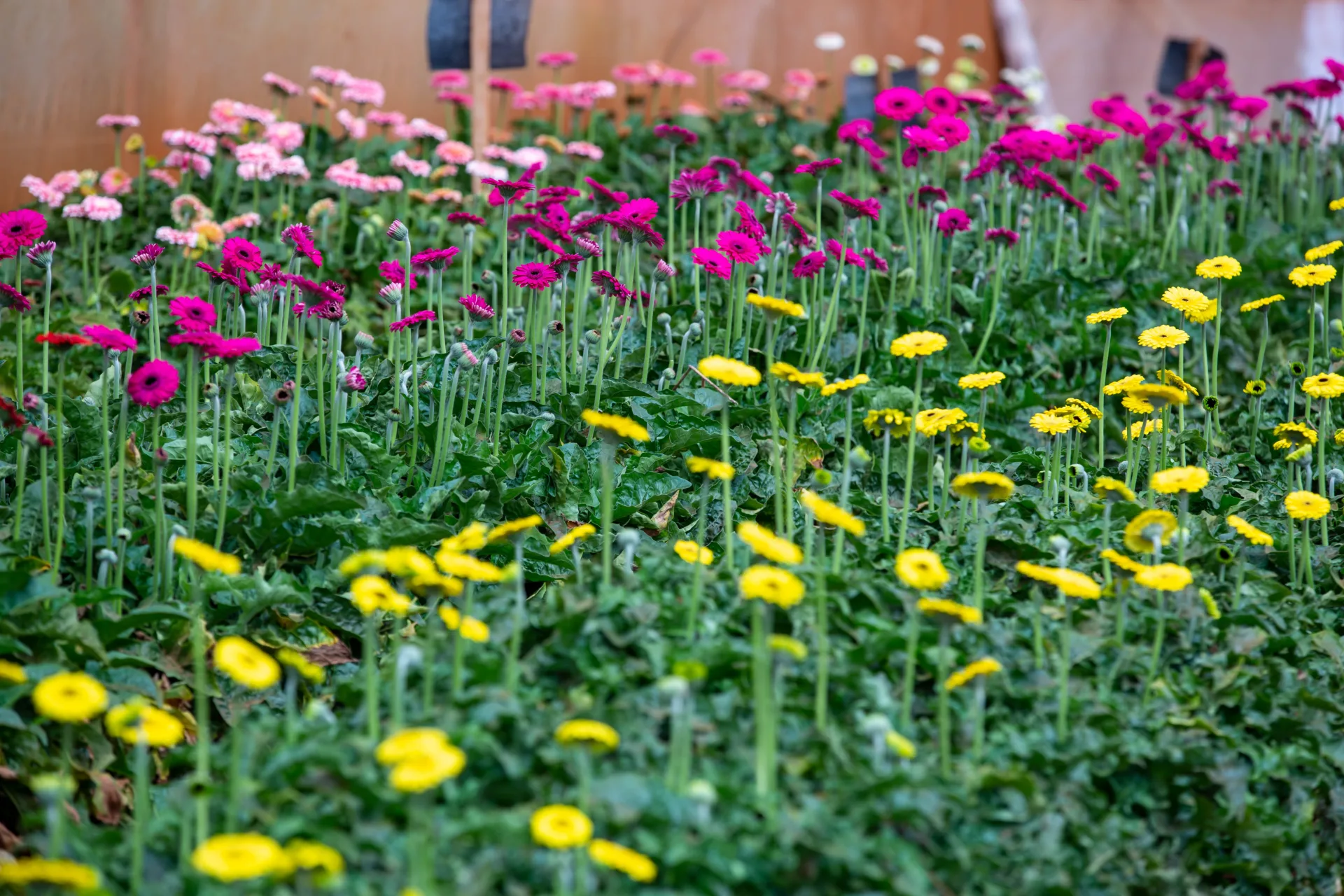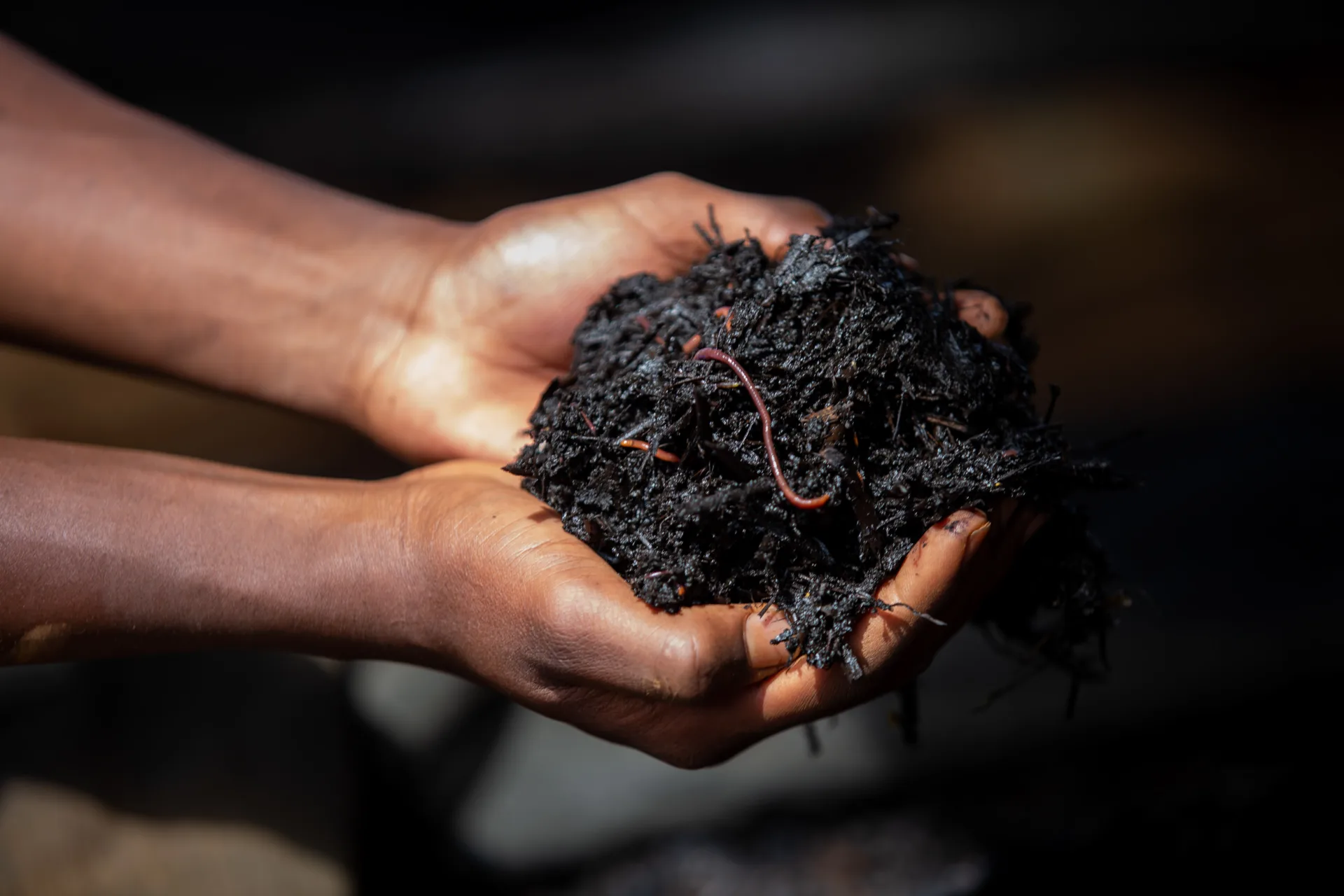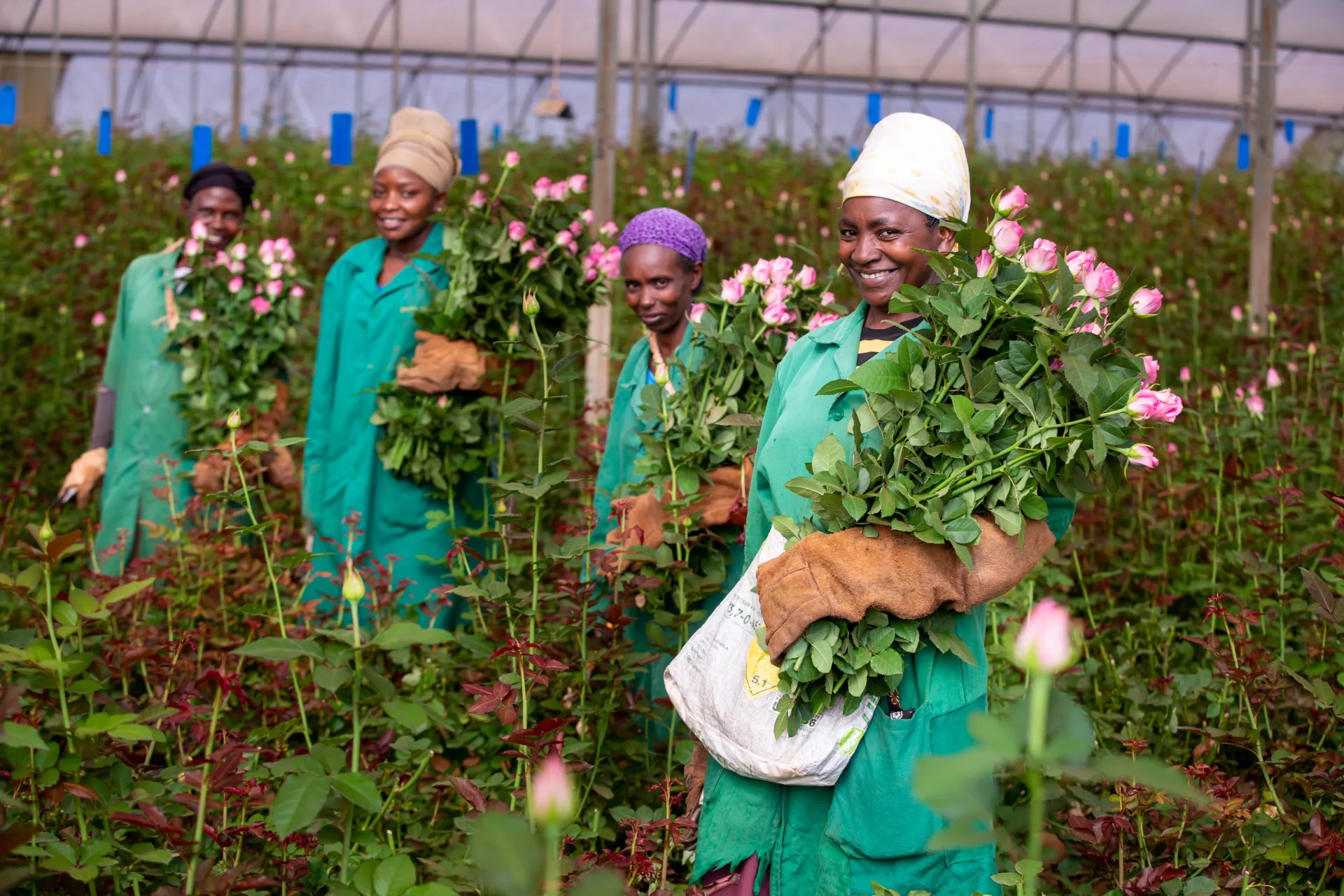Ethical Flower Sourcing: Supporting Communities & Livelihoods
Ethical Flower Sourcing: Supporting Communities & Livelihoods
When you choose ethically sourced flowers, your purchase reaches beyond a simple transaction; it supports families, funds education, and sustains the land. Over our 20 years in the floriculture industry, we’ve seen how responsible practices create ripple effects—from securing stable employment and fair wages to funding healthcare, education, and environmental regeneration.
Ethical sourcing in floriculture is more than a label—it’s a measurable commitment to the people and places behind every flower. By choosing ethically certified, community-centred farms, wholesalers strengthen supply chains, enhance brand reputation, and contribute to lasting socio-economic transformation.
At The Flower Hub, we enable access to these farms, share verified data, and support transparent business partnerships.
Read MoreThe Human Face of Floriculture
Kenya is the world’s third-largest exporter of cut flowers, supplying roughly 30–35 percent of Europe’s auctioned blooms .
Yet this industry’s impact goes far beyond trade figures:
- Direct employment: Approximately 150,000 people work directly on Kenyan flower farms , with women comprising around 70 percent of the workforce.
- Indirect livelihoods: Hundreds of thousands more depend on floriculture for income—from transport and packaging to hospitality and retail—while wages support wider household networks.
- Community investment: Farm workers’ incomes sustain entire families, often supporting six to ten dependents, impacting thousands of lives in each growing region.
How Ethical Sourcing Impacts Communities
When you source ethically, you help provide stable incomes, healthcare access, and educational opportunities—uplifting entire communities.
A Workforce That Empowers
Kenya’s floriculture sector directly employs approximately 150,000 people and supports hundreds of thousands more through auxiliary services. Partner farms go further by offering above-market wages, on-site childcare and healthcare, and scholarship programmes for workers’ children. They also participate in national training schemes that equip new entrants with agricultural skills, with many trainees progressing into supervisory roles.
Investing in Education and Health
Education underpins sustainable development. Some partner farms fund local schools, providing new classrooms, sanitary facilities, and scholarship opportunities. Others contribute a portion of annual profits to mobile clinic initiatives, delivering vaccinations and basic health services across growing communities. Training centres run by Fairtrade-certified partners offer courses in financial literacy, leadership and agronomy.
Environmental Stewardship for Future Generations
Ethical sourcing also means caring for the land. Partner farms use vermicomposting and cover-crop rotations to replenish soil nutrients, reduce synthetic fertiliser use, and restore degraded land. Closed-loop waste systems turn floral by-products into compost and “worm tea,” naturally enriching fields, preserving water, improving soil health and sequestering carbon to safeguard farms against climate variability.
Transparent, Traceable Supply Chains
At The Flower Hub, every farm partner meets stringent ethical and environmental standards. Through regular audits and direct engagement, we maintain full traceability from seed to shipment. Our clients can access detailed reports on worker conditions, community investment and environmental metrics—offering full confidence that each stem supports positive change.
A Few Partner Farms Leading the Way
- Baraka Roses
A high-altitude farm known for its focus on worker welfare, offering on-site childcare and health services, scholarship support for farm families, and a robust composting programme that turns floral by-products into soil-enriching material.
- Wildfire Farm
A leader in regenerative horticulture, with large-scale vermicomposting, cover-crop rotations and soil restoration projects that enhance biodiversity and build long-term soil health.
- Penta Flowers
Focused on community wellbeing, Penta runs on-site clinics and supports local schools through infrastructure and educational programmes, while operating a closed-loop system to recycle floral waste back into the growing process.
- Karen Roses
An aspiring B Corporation, Karen Roses invests in skills development for its workforce, supports renewable-energy initiatives on-site and promotes pathways for employees to move into leadership positions.
- Sosiani Flowers
Fairtrade certified, Sosiani channels Fairtrade Premium funds into worker training, financial-literacy workshops and community development projects—helping to strengthen local households and build resilience.
Why Ethical Sourcing Matters for Wholesalers
- Superior quality and shelf life
- Regenerative farming and high-altitude growing translate into fresher, longer-lasting flowers—reducing waste and boosting customer satisfaction.
- Traceability builds trust
- Partnerships with Fairtrade, GLOBALG.A.P. Chain of Custody and B Corp certification meet rising global demand for responsibly sourced products and open doors to premium markets.
- Positive cost and risk benefits
- Composting and other closed-loop measures lower chemical inputs and costs. Climate resilience features—like water storage and solar modules—insulate farms (and your supply chain) from shocks.
- Social impact brings brand value
- Ethically sourced flowers align your brand with real-world impact—improved livelihoods, education and gender equity—strengthening your story and reputation.
Partnering with The Flower Hub
We select every farm using rigorous social, environmental and governance standards—reflecting our B Corp status and alignment with the Kenya Flower Council. Our end-to-end traceability, consolidated invoicing and streamlined logistics let you focus on growing your business while ensuring your flowers uphold your ethical commitments.
Your next order can be more than a purchase, it can be a vote of confidence in communities across Kenya. By sourcing ethically, you nourish livelihoods, foster sustainable practices and strengthen the floral industry.
Find out more by emailing us at enquiries@theflowerhub.com
Sources:
